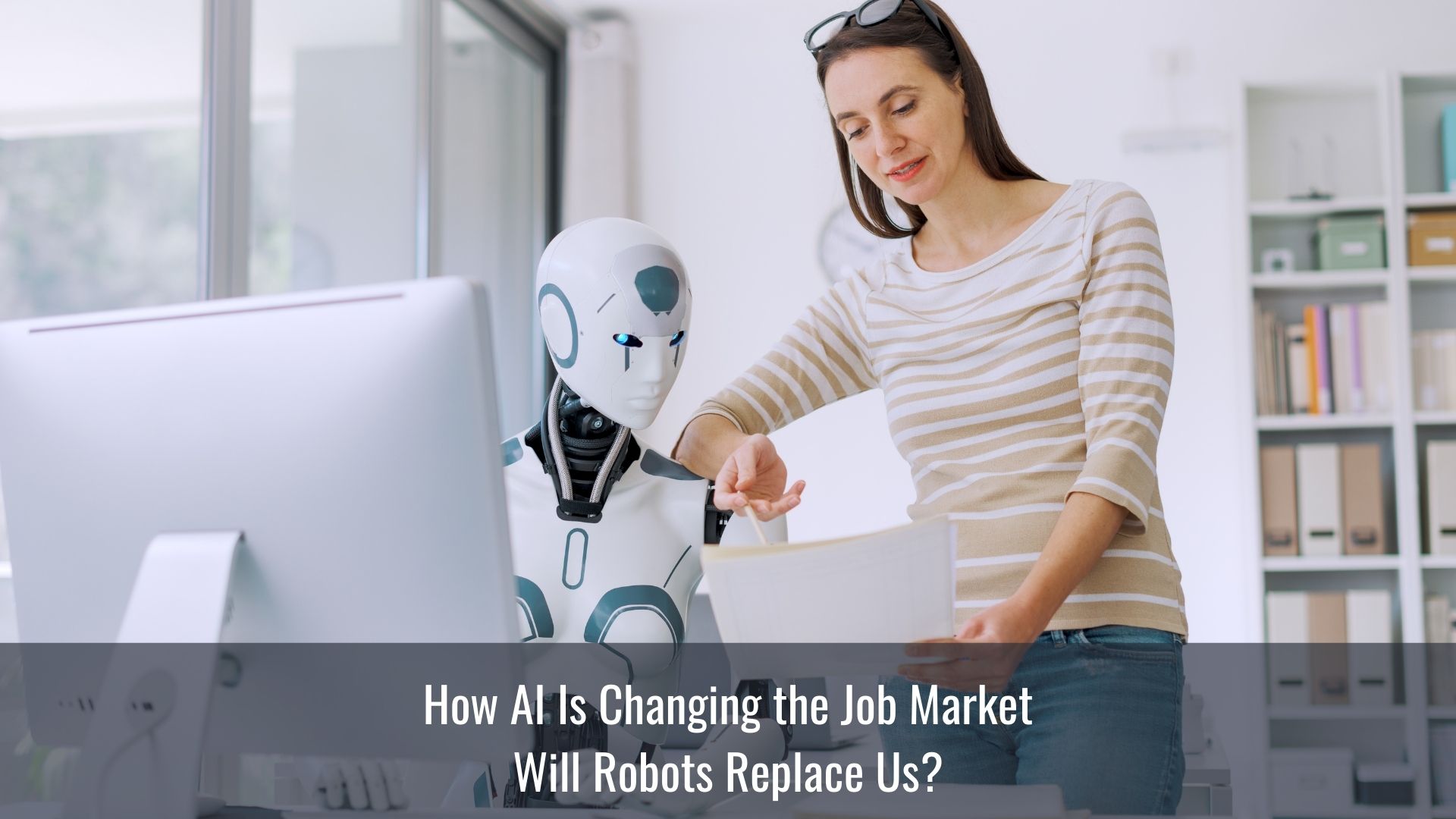Introduction
Artificial intelligence (AI) is transforming industries worldwide, automating tasks, and reshaping the job market. From self-driving cars to AI-powered customer service, the question arises: Will robots replace human jobs?
While AI can handle repetitive and data-driven tasks efficiently, it also creates new opportunities, shifting the nature of work rather than eliminating it. Let’s explore how AI reshapes the workforce and what it means for employees and businesses.
1. Jobs at Risk: Where AI Is Replacing Humans
AI is particularly effective at automating routine, repetitive, and rule-based tasks, leading to job displacement in specific sectors.
Industries Most Affected by AI Automation:
🔹 Manufacturing & Logistics – Robots handle assembly lines, warehouse management, and deliveries (e.g., Amazon’s robotic warehouses).
🔹 Retail & Customer Service – AI chatbots and self-checkout systems reduce the need for human cashiers and customer service representatives.
🔹 Transportation – Self-driving trucks and ride-hailing automation threaten driving-related jobs.
🔹 Finance & Accounting – AI algorithms automate data entry, fraud detection, and financial analysis.
🔹 Administrative Roles – AI-powered tools streamline scheduling, data processing, and document management.
While some jobs disappear, AI-driven automation often enhances productivity rather than entirely replacing human roles.
2. Jobs AI Cannot Replace (Yet)
Despite AI’s advancements, many jobs require human creativity, critical thinking, and emotional intelligence, making them difficult to automate.
Jobs That Are AI-Resistant:
✔ Creative Professions – Writers, designers, artists, and marketers rely on originality and human intuition.
✔ Healthcare & Medicine – While AI assists in diagnosis, doctors and nurses provide hands-on patient care and decision-making.
✔ Education & Training – AI can support learning, but teachers offer mentorship, motivation, and adaptability.
✔ Skilled Trades – Plumbers, electricians, and mechanics require hands-on problem-solving.
✔ Social & Emotional Roles – Therapists, social workers, and HR professionals excel in human interaction.
Instead of replacing these jobs, AI is becoming a collaborative tool that enhances productivity.
3. The Rise of AI-Generated Jobs
While AI automates some roles, it creates new job opportunities in emerging fields.
AI-Driven Careers on the Rise:
🚀 AI Specialists & Data Scientists – Experts who build, train, and refine AI systems.
🚀 Cybersecurity Analysts – With AI-driven threats increasing, security experts are in high demand.
🚀 AI Ethics & Compliance Officers – Professionals ensuring responsible AI use.
🚀 AI-Assisted Content Creators – Writers, designers, and marketers using AI-enhanced tools.
🚀 Machine Learning Engineers – Developing AI models and automation systems.
Workers who adapt and reskill can transition into these high-demand roles rather than being displaced.
4. How to Future-Proof Your Career in the Age of AI
With AI shaping the workforce, professionals must stay competitive by developing skills that AI cannot easily replicate.
Key Skills for an AI-Driven Job Market:
🔹 Adaptability & Continuous Learning – Keeping up with new technologies and industry trends.
🔹 Problem-Solving & Critical Thinking – AI follows patterns, but humans innovate.
🔹 Emotional Intelligence & Communication – Building relationships, negotiation, and leadership.
🔹 Technical Skills – Understanding AI tools, coding, and data analytics.
🔹 Creativity & Innovation – Designing new solutions and content that AI cannot generate independently.
Governments and businesses must also invest in upskilling programs to help workers transition into AI-driven roles.
5. The Future: Humans & AI Working Together
Rather than replacing humans entirely, AI is evolving into a collaborative assistant, augmenting human capabilities and improving productivity.
How AI & Humans Can Coexist in the Workforce:
🤖 AI handles data processing, automation, and repetitive tasks.
👨💼 Humans focus on strategic thinking, decision-making, and creativity.
📈 Businesses integrate AI tools to enhance human productivity rather than replace jobs outright.
In many industries, AI assists rather than replaces workers, allowing them to focus on more complex and value-driven tasks.
Conclusion
The rise of AI in the job market brings both challenges and opportunities. While automation may replace specific roles, it creates new job opportunities and enhances human productivity. Instead of fearing AI, professionals should embrace lifelong learning and adaptability to stay relevant in the evolving workforce.
So, will robots replace us? Not entirely—but they will undoubtedly change how we work. The future belongs to those who adapt, reskill, and leverage AI as a tool rather than a competitor.

